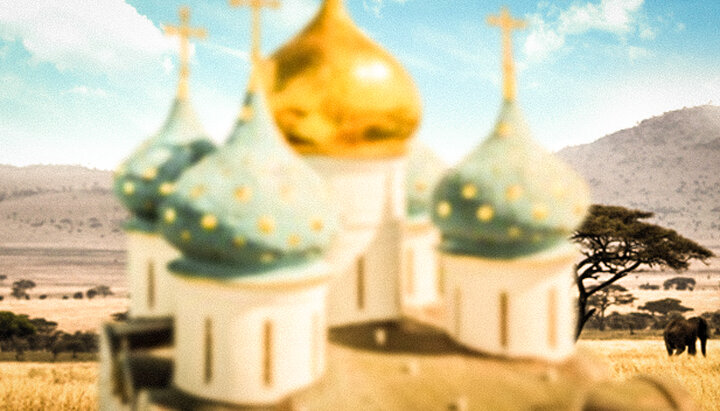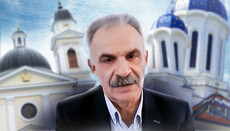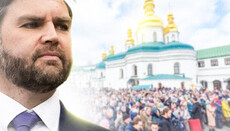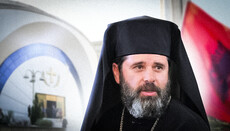The Russian Exarchate of Africa: religion and geopolitics

The creation of the African Exarchate is both a response to the Alexandrian Church to the recognition of Ukrainian schismatics and a natural event in the changing world.
At the very end of 2021, there was a historic event in the Orthodox world that will have a huge impact on the Church – the ROC announced the creation of the Patriarchal Exarchate of Africa.
Church and politics
The question of the relationship between the Church and politics is very complex and controversial. Throughout the history of the Church, at different times and in different political situations, Orthodox theologians have expressed different points of view on this issue. On the one hand, it is an undeniable fact that the Lord Jesus Christ not only refused to be involved in politics but rejected the prospect of his participation in it. He withdrew from it by the waters of the Lake of Galilee: "Jesus, knowing that they intended to come and make Him king by force, withdrew again to a mountain by himself. When evening came, His disciples went down to the lake, where they got into a boat and set off across the lake for Capernaum. By now it was dark, and Jesus had not yet joined them. A strong wind was blowing, and the waters grew rough. When they had rowed about three or four miles, they saw Jesus approaching the boat, walking on the water; and they were frightened. But He said to them: ‘It is I; do not fear,’” (John 6:15-20).
The Lord also commanded His apostles to engage not in politics: "Therefore go and make disciples of all nations, baptizing them in the name of the Father and of the Son and of the Holy Spirit..." (Matthew 28:19). The mission of the Church as the Body of Christ is not to participate in political processes at all.
On the other hand, the Church does not live in a vacuum but in a world where politics is an integral part of it and concerns all spheres of human life. In the history of the Church, it has happened more than once that Orthodox and heretics belonged to different political camps. This was the case with the Arian controversy, iconoclasm, etc. The victory of Orthodoxy or its defeat (intermediate as further history showed) was often accompanied by the victory of one or another political force.
By and large, no one knows how to resolve this dichotomy. But there are several statements that seem to be correct:
- Firstly, the Church must not allow itself to violate moral norms or canonical rules when interacting with political forces;
- Secondly, the Church must not serve political interests;
- Thirdly, the Church must not allow itself to be associated with any political forces;
- Fourthly, subject to the above three conditions, the Church may take advantage of the help or opportunities that may be offered to it by a given state or political force.
What canons say
Did the ROC violate the holy canons by stepping onto the canonical territory of another Local Church and creating there a parallel hierarchy? The supporters of the Phanar/OCU/Patriarchate of Alexandria in their publications unequivocally say that yes, it did, and moreover, it created a schism in Africa. However, any sensible person can see that the ROC's act is only a reaction to the real schism that the Phanar created in 2018 by legalising Ukrainian schismatics on the canonical territory of the Ukrainian Orthodox Church. At the same time, the UOC was not in schism with the Orthodox Church at the time of the Constantinople Patriarchate's invasion, was not accused of heresy and did not taint itself with any improper deeds or decisions. When the ROC hierarchy warned the Phanar that by interfering in Ukraine it would open a "Pandora's box", no one wanted to listen to it.
The ROC's act is only a reaction to the real schism that the Phanar created in 2018 by legalising Ukrainian schismatics on the canonical territory of the Ukrainian Orthodox Church.
In the case of the creation of the Russian Exarchate in Africa, the situation is fundamentally different: the Patriarchate of Alexandria, by recognizing the OCU, clearly deviated into schism. The decision of the Holy Synod of the ROC of 29 December 2021 says: "As a result of the deviation into schism by Patriarch Theodore of Alexandria, his commemoration of the head of the so-called ‘Orthodox Church of Ukraine’ at the Divine Liturgy on 8 November 2019 among the Primates of the Autocephalous Churches, recognition of the said schismatic grouping and concelebration with its head on 13 August 2021, part of the clergy of the Alexandrian Patriarchate, having declared their disagreement with the position of the Primate, addressed Patriarch Kirill of Moscow and All Rus’ with a request to be accepted into the bosom of the Russian Orthodox Church." That is, at the time of the creation of the Russian Patriarchal Exarchate of Africa the Alexandria Patriarchate was already in schism.
It could be noted that the ROC acted absolutely canonically in this situation, and so did the African clerics, who separated from communion with their patriarch to join the ROC. But not everything is so simple and unambiguous.
There is Canon 15 of the First-and-Second Council of Constantinople, which prescribes that clerics should separate from their bishops in case the latter deviate into heresy: "But as for those who on account of some heresy condemned by Holy Synods or Fathers sever themselves from communion with their president, that is, because he publicly preaches heresy and with bared head teaches it in the Church, such persons as these not only are not subject to canonical penalty for walling themselves off from communion with the so-called bishop before synodical clarification but they shall be deemed worthy of due honour among the Orthodox. For not bishops, but false bishops and false teachers have they condemned, and they have not fragmented the Church's unity with schism, but from schisms and divisions have they earnestly sought to deliver the Church.”
The Alexandrian Patriarchate, by recognising the OCU, clearly deviated into schism.
This canon was cited as an argument by the Russian hierarchs and tsars, when, without the blessing of the Patriarch of Constantinople, they independently elected Bishop Jonah of Ryazan as Metropolitan of Kiev and All Rus’ at the Local Council in 1448 (in fact, they proclaimed church autonomy). The Russians then decided to do this because the Patriarchate of Constantinople had fallen into heresy by accepting the Uniate of Florence in 1439.
An interesting historical detail – Metropolitan Jonah became the Primate of the Church not only within the Moscow Kingdom but also within the Kiev Metropolis, which was under the rule of the Grand Duchy of Lithuania. That is, the Russian Church was then one in two states, but it was divided into two metropolises not by the Patriarch of Constantinople but ... Pope Callixtus III on October 15, 1458. The Pope, according to the Union of Florence, considered himself the head of the Church and believed that such issues belong precisely to his competence. The Uniate Patriarch of Constantinople Gregory III Mamma believed in the same way, and only after the Pope's decision made Gregory the Bulgarian “Metropolitan of Kiev, Lithuania and All Rus’”.
Later, everyone recognized this state of affairs, but the fact remains: the Kiev Metropolis was separated from the Moscow one by the completely uncanonical head of the Catholic Church and was part of the Patriarchate of Constantinople until 1686 when by the decision of Patriarch Dionysius IV of Constantinople it was reunited with the Russian Church, which by that time had already become a patriarchate.
However, this is just a historical remark. Let's return to the canonical issues of the creation of the Russian Exarchate in Africa.
According to Canon 15 of the First-and-Second Council of Constantinople, clerics must break communion with their bishops if they fall into heresy. But schism and heresy are not the same things. Rule 1 of St Basil the Great says the following about this: “The old authorities <...> they used the names of heresies, of schisms, and of unlawful congregations. By heresies they meant men who were altogether broken off and alienated in matters relating to the actual faith; by schisms men who had separated for some ecclesiastical reasons and questions capable of mutual solution; by unlawful congregations gatherings held by disorderly presbyters or bishops or by uninstructed laymen." That is, schism is a division of opinions on questions that can be healed, and, unlike heresy, it does not justify the creation of a parallel hierarchy.
Does it mean that the ROC acted uncanonically? Again, it is not that simple. The fact is that all the actions of the Phanar in Ukraine – the recognition of schismatics, the creation of the OCU, the "abolition" of the UOC – are not only schismatic actions but also manifestations of the real heresy – the heresy of Constantinople papism. And all those who agree with the actions of the Phanar are, first of all, supporters of heresy. After all, the Church from the beginning confesses that only Jesus Christ is the Head of the Church. He exercises this headship directly and does not need any of his "deputies", "vicars" or other "executors" here on earth. This is a matter of principle and involves no compromise whatsoever. The disagreement on this issue cannot be healed anything other than the rejection of the false doctrine of some hierarch who is the head of the Church on earth or, to put it more diplomatically, has exclusive authority. It may be said that the heresy of Constantinople papism has not yet been condemned by a council, but any heresy has been rejected and condemned by individual hierarchs or by the Local Churches even before its official condemnation at Ecumenical Councils.
Constantinople papism was actually condemned at the Council of Bishops of the Russian Orthodox Church in 2008. Although the word "heresy" was not mentioned at that time but was diplomatically replaced with the phrase "new ecclesiological concept", the content of this heresy was already formulated and it was indicated that the Russian Orthodox Church rejected it.
Constantinople papism was actually condemned at the Council of Bishops of the ROC in 2008.
The text of the Special Resolution reads as follows: "The Council expresses its deep concern over the tendencies <...> manifested in the statements of certain representatives of the Holy Church of Constantinople. Starting from an interpretation of Canon 28 of the IV Ecumenical Council not shared by the fullness of the Orthodox Church, these hierarchs and theologians are developing a new ecclesiological concept, which is becoming a challenge to pan-Orthodox unity. According to this concept: a) only that Local Church which is in communion with the See of Constantinople is considered to belong to universal Orthodoxy; b) the Patriarchate of Constantinople has exclusive jurisdiction in all countries of Orthodox dispersion; c) in these countries the Patriarchate of Constantinople solely represents the opinions and interests of the Local Churches before the public authorities; d) any bishop or clergyman serving outside the canonical territory of his Local Church is under the ecclesiastical jurisdiction of Constantinople, even if he himself does not realize it; e) The Patriarchate of Constantinople determines the geographical boundaries of the Churches and, if its opinion does not coincide with the opinion of a particular Church on this matter, can establish its own jurisdiction on the territory of that Church. <...> This vision by the Patriarchate of Constantinople of its own rights and powers comes into insurmountable contradiction with the centuries-old canonical tradition on which the existence of the Russian Orthodox Church and the other Local Churches rests.”
Why did the Council of Bishops of the ROC not give heresy its name? Because it was 2008, there was no interference of the Phanar in Ukraine, and there was still hope that the Constantinople hierarchs would come to their senses and realize that they were moving in the wrong direction.
But Archimandrite Sophrony (Sakharov), a Russian Orthodox ascetic, a cleric of the Constantinople Patriarchate and a disciple of St. Silouan of Athos, was freer in his statements. Back in 1950, he wrote the following: "At the present time in the bowels of our Holy Church, there is a great danger of distorting the dogmatic teaching about Her. <...> You may ask: What is this distortion seen in now? We answer: in Constantinople neo-papism, which is quickly trying to go from a theoretical to a practical phase. <...> Need I say that this form of papism is also an ecclesiological heresy as is Roman papism?"
Constantinopolitan neo-papism, which is quickly trying to go from a theoretical to a practical phase, is an ecclesiological heresy as is Roman papism.
Archimandrite Sophrony (Sakharov)
It can be assumed that the heresy of Constantinople papism will be called heresy and condemned at the forthcoming Council of Bishops of the Russian Orthodox Church in 2022, and then in the so-called Amman format by the primates and representatives of the Local Churches who did not agree with this heresy in the form of the OCU recognition.
Based on the above, it can be argued that the ROC, having created the Patriarchal Exarchate in Africa, did the right thing both in terms of canons and church diplomacy, because such a decision could have been made almost immediately after the recognition of the OCU by Patriarch Theodore of Alexandria. However, the ROC waited more than two years, and it can be assumed that during this time informal contacts were held at various levels to explain to the Alexandrian hierarchs the uncanonical and unconstructive nature of their position.
And only now, when it became clear that the Patriarchate of Alexandria is firmly tied to the Phanar and the heresy of Constantinople papism, the ROC decided to take such radical actions.
Why an exarchate, not patriarchal parishes
The Holy Synod of the Russian Orthodox Church says that the decision to create the Exarchate was a response to the appeal of African clerics who disagreed with the decision of Patriarch Theodore of Alexandria to enter into communion with the schismatics. However, to accept them into the jurisdiction of the Russian Orthodox Church, there was no need to establish an exarchate. Today such parishes exist in Egypt, Tunisia, Morocco and South Africa. This does not violate the canonical territory of the Alexandria Patriarchate and does not create any parallel hierarchy. Why was the hard option chosen to create the Exarchate with its hierarchical structure?
The Russian Orthodox Church, by creating the Patriarchal Exarchate in Africa, did the right thing both in terms of canons and church diplomacy.
One can assume the following: firstly, the Moscow Patriarchate realized that the Alexandria Patriarchate was no longer capable of admitting its mistake, withdrawing the recognition of the OCU and restoring relations with the ROC. The point of no return in this matter has been passed, and therefore it’s senseless to take half-hearted decisions. Patriarch Theodore will not repent of his treacherous betrayal of the UOC and His Beatitude Onuphry, the former unity will not exist. This is evidenced by his initial reaction to the creation of the Exarchate. On 31 December, he said that he had already "given a message that other Churches that encroach on this sacred space called the mission should hear".
Secondly, there are good reasons to believe that not only priests from the Alexandrian Patriarchate but also bishops will join the Patriarchal Exarchate in the near future. This was stated by the newly appointed Exarch of Africa, Metropolitan Leonid of Klin. Accordingly, simply multiplying the stauropegic parishes of the Moscow Patriarchate would put them out of work. But with the Exarchate, they would be integrated into this new organizational structure.
Thirdly, the status of the exarchate provides for greater autonomy and independence than the entirety of the stauropegic parishes. The exarchate status allows local bishops and priests, as well as ordinary believers, to take a greater part in the management of this structure. Therefore, the creation of the Exarchate in Africa seems justified, although not absolutely indisputable.
What geopolitics has to do with it
Geopolitical processes are underway in Africa and the essence of these processes is as follows: U.S. and European influence is weakening, while China and Russia (and to a lesser extent Turkey) are gaining a foothold. In recent years, Russia has significantly increased its presence in Africa in the economic sphere, and even more in the political and military ones. In October 2019, the leaders of almost all African countries came to Sochi for the unprecedented Russia-Africa summit, at which a number of documents were signed that strengthen Russia's influence in the region. In 2022, it is planned to hold the second such summit, where roadmaps for Russian-African cooperation in the economic, scientific and humanitarian spheres will be adopted.
Of course, it would not be correct to claim that Russia's growing influence in Africa has led to the creation of the Patriarchal Exarchate there, but the emerging political circumstances provide good opportunities for developing the Exarchate and promoting the Orthodox mission on this continent.
On the other hand, the decline in American influence both in Africa and in the world as a whole has a negative impact on all US projects. In the religious sphere, this is primarily a project to promote the interests of the Phanar, the creation of the OCU and ensure that this project is recognised by the Local Churches.
But of far greater importance than the political processes in Africa described above is the global division of countries into two camps. Conventionally, these camps can be called liberal-globalist, led by the US, and national-traditionalist, led by China and Russia. As of today, the leaders of these two movements have emerged, and there is an active struggle between them to pull both key countries (such as India, Turkey, EU countries) and smaller states into their camps. A landmark event in this division was the so-called "Summit of Democracies" organised by the United States, which at the last minute was renamed as the "Summit for Democracy". It was supposed to bring together those states that are recognised by the United States as democracies, and therefore they will support the American agenda, while those countries that were not invited, will be labelled as authoritarian. Admittedly, the summit proved largely unsuccessful.
The agenda promoted by the aforementioned blocs also became apparent. In the humanitarian sphere, the U.S.-led bloc promotes liberalism, freedom of all kinds of perversions, LGBT rights, and BLM ideology. In the religious sphere, it is ecumenism and the degradation of moral norms.
China, Russia and other countries offer a conservative or traditionalist agenda, according to which women should be women and men should be men, the family should be traditional, and perversions should be called perversions and not the norm. In this agenda, states protect and assist their traditional faiths, although sometimes this assistance is too intrusive.
These two blocs are still in their stage of formation; it is not yet known what they will look like or whether they will manage to form at all. But not only countries but also some religious organisations have already pledged allegiance to these blocs. For example, the Vatican and the Phanar have already made it clear that they support the U.S. and its geopolitical and ideological agenda. The recent visit of Patriarch Bartholomew to the United States proved this quite clearly, although there is no doubt about the Phanar’s orientation towards the United States at least for the last 70 years. Thus, those Local Churches (precisely, the hierarchs of these Churches) that supported the Patriarchate of Constantinople and its heresy of Constantinopolitan papism, manifested in the creation of the OCU, also made their geopolitical choice. The OCU was created at the initiative and with the massive support of the United States. The recognition or non-recognition of this organization by the Local Churches provoked a division in Orthodoxy, which means that the geopolitical split in the world was superimposed on the church schism in Orthodoxy. As the chairman of the DECR of the Russian Orthodox Church, Metropolitan Hilarion (Alfeyev) of Volokolamsk, said in a recent interview, "division in world Orthodoxy is also a fait accompli."
For the Churches that have recognized the OCU to change their choice, there must be some extraordinary events, such as the retirement of Patriarch Theodore and his public repentance for violating the canons. This is unlikely to happen, which means that the successes or failures of the US in Africa will affect the Patriarchate of Alexandria accordingly.
But it is not the dependence on US diplomacy that is the main reason for the negative trends in the Alexandrian Patriarchate, which will undoubtedly only increase. The main thing is the desire to promote not so much Orthodoxy as such but rather Hellenism (often in its worst manifestation), as has been repeatedly stated by the bishops and hierarchs of the so-called Greek Churches. Father Georgy Maximov, who is personally familiar with the religious situation in Africa, wrote on his TG channel: “The modern Greek mission in Africa is largely a Potemkin village, exploited by a handful of Greek bishops to raise money from Greeks in other countries. Not all Greek bishops are like that, but many are. Africans are not stupid and see it too. Fatigue from the Greeks has been building up there for a long time. Africa deserves the best." And even if we assume that Father Georgy exaggerates somewhat, the picture still looks rather deplorable.
The prospects for the Russian Patriarchal Exarchate
The decisive factor in this matter will be human resources, that is, the personal faith and piety of those African clerics who have decided to join the ROC. The enemies of the ROC have already hastened to say that they have allegedly sold out for money and are schismatics and old calendarists. This is not true as all the clerics who have submitted petitions for the transfer to the jurisdiction of the ROC are canonical priests who are not defrocked or under any other bans. So far, the official number is 102, but an increase should be expected in the very near future. The total number of clerics in the Alexandrian Patriarchate is difficult to determine, but 102 is about 20% of the total. By comparison, one can imagine what would happen if 2,500 priests moved to the OCU from the UOC.
It can be argued that most of the clergy who have joined the ROC are zealous pastors who fundamentally disagree with the violation of the sacred canons of the Church.
It can be argued that most of the clergy who have joined the ROC are zealous pastors who fundamentally disagree with the violation of the sacred canons of the Church. This conclusion can be drawn from the following circumstances: firstly, many of them made a corresponding request back in 2019, immediately after the recognition of the Ukrainian schismatics by Patriarch Theodore. That is, the reason for the request was none other than the violation of the canons by Patriarch Theodore of Alexandria. Such an appeal was a very courageous step because it was not known whether they would be accepted by the Russian Orthodox Church or not, but from the side of the Alexandrian Patriarchate, all sorts of bans, punishments and the like would surely follow. Secondly, the Alexandrian clerics did not change their mind, despite the loss of salaries and threats of physical violence against them. For example, the vicar of the Tanzanian diocese, the Greek Bishop Agathonikos, according to the local priests, literally, we quote, “threatened to kill us”. And thirdly, these clerics decided to go to the Russian Orthodox Church, knowing full well that they will face a long confrontation with their opponents, a struggle for parishes, church property, and so on. From an everyday point of view, it would be much more comfortable not to oppose Patriarch Theodore but to take the position: "the giraffe is big – it knows best", which, incidentally, was done by so many priests in Cyprus, Greece, and even on Athos.
Thus, political tendencies, a general feeling among a large part of the African clergy against the domination of Hellenism, as well as the integrity of the clergy who joined the Russian Orthodox Church, create favourable conditions for the development of the Patriarchal Exarchate. Probably, soon we will soon see new priests and even bishops joining the Exarchate, new churches being built and missionary work developing on the African continent. In the very near future, there will be a need for local candidates for the priesthood to receive spiritual education, and here, I think, Ukrainian theological schools can also seriously help. Perhaps, Ukrainian priests or even bishops will go to Africa to preach the Gospel, temporarily or on a permanent basis. This would be very symbolic, given the treacherous betrayal of the UOC by Patriarch Theodore. As for the Alexandrian Patriarchate, it runs the risk of degenerating into a nominal structure with the minimum number of "living" parishes but with enough titular bishops who are ready to promote Hellenism and primacy of the Patriarch of Constantinople. Such a fate is certainly not to be envied, but the Patriarch of Alexandria made his own choice. However, it is never too late to repent.









